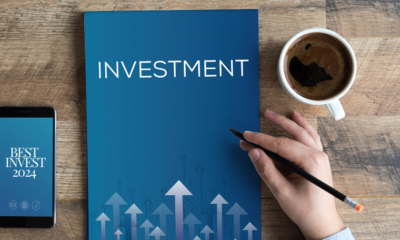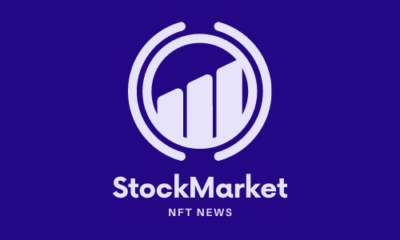Finance
10 Personal Finance Tips That Will Transform Your Financial Future in 2025

As we stand on the cusp of 2025, personal finance has become more dynamic and complex than ever before. The post-pandemic economy, the rapid evolution of technology, and changing global markets have all played significant roles in reshaping how we think about money. For many, financial security now seems like a moving target, requiring not just discipline, but also adaptability and foresight. Whether you are starting your financial journey or looking to solidify your financial strategies, the following ten personal finance tips will provide a comprehensive roadmap to ensure that 2025 is a year of financial growth and stability.
1. Embrace a Dynamic Budgeting System
Budgeting has always been the cornerstone of financial management, but in 2025, it’s time to move beyond static, one-size-fits-all models. The financial landscape is constantly shifting, influenced by economic trends, lifestyle changes, and personal goals. A dynamic budgeting system is essential to keep up with these changes and ensure you are always making the most of your money.
Start by using real-time budgeting apps like YNAB (You Need a Budget) or GoodBudget, which allow for constant updates based on your spending and income patterns. These tools offer flexible budgeting categories that can adjust as your priorities change. For instance, if you notice an increase in your income, you can immediately allocate more towards savings or investments, rather than waiting until the end of the month.
In 2025, consider adopting a zero-based budgeting approach, where every dollar is assigned a job, be it for bills, savings, or discretionary spending. This method forces you to justify every expense, ensuring that your money is always working towards your financial goals. Moreover, it keeps you agile, allowing you to reallocate funds quickly in response to unexpected expenses or new opportunities.
2. Supercharge Your Emergency Fund
The importance of an emergency fund cannot be overstated, particularly in an era marked by economic uncertainty. While the traditional advice of saving three to six months’ worth of living expenses still holds, 2025 demands that we think bigger and more strategically about our emergency funds.
Given the volatile job market and potential for unexpected global events, aim to build an emergency fund that covers at least nine to twelve months of essential expenses. Store this fund in a high-yield savings account, but also consider diversifying a portion into short-term bonds or other low-risk investments that offer better returns while maintaining liquidity.
Automating your savings is crucial. Set up automatic transfers from your checking account to your emergency fund every time you get paid. This ensures consistency and prevents the temptation to spend the money elsewhere. In addition, regularly review and adjust your emergency fund target as your financial situation changes, such as after a raise, a new job, or significant life events.
3. Invest in Financial Education with a Focus on Technology
In 2025, financial literacy is no longer just about understanding basic budgeting, investing, or saving. The financial world is increasingly intertwined with technology, from cryptocurrencies and blockchain to robo-advisors and AI-driven financial planning tools. To stay ahead, it’s imperative to invest in your financial education with a strong emphasis on understanding these technological trends.
Start by familiarizing yourself with digital currencies like Bitcoin, Ethereum, and other emerging tokens. Learn about decentralized finance (DeFi) platforms, which allow you to engage in traditional financial activities—like lending, borrowing, and trading—without the need for a central authority.
Additionally, explore the impact of artificial intelligence in financial planning. AI-driven tools can analyze your spending patterns, investment portfolio, and financial goals to offer personalized advice that was once only available through expensive financial advisors.
Online platforms like Coursera, Khan Academy, and LinkedIn Learning offer courses that can help you understand these concepts at your own pace. Books like “The Bitcoin Standard” by Saifedean Ammous and “AI Superpowers” by Kai-Fu Lee are also excellent resources to deepen your understanding of how technology is reshaping finance.
4. Diversify Your Investment Portfolio Beyond Traditional Assets
In the evolving landscape of 2025, diversification remains a critical strategy for protecting and growing your wealth. However, the definition of diversification is expanding beyond traditional assets like stocks, bonds, and real estate. To truly safeguard your financial future, consider adding alternative investments to your portfolio.
Cryptocurrencies, for example, have moved from the fringes to a more mainstream role in investment portfolios. While they are highly volatile, allocating a small percentage of your portfolio to cryptocurrencies can provide significant upside potential. Platforms like Coinbase or Binance make it easier than ever to buy and trade digital assets.
Another area to explore is real estate crowdfunding, which allows you to invest in commercial or residential properties without the need for large upfront capital. Companies like Fundrise or RealtyMogul offer opportunities to invest in a diversified portfolio of properties, often with a lower barrier to entry compared to traditional real estate investments.
Moreover, consider investing in private equity or venture capital through platforms like AngelList or EquityZen. These platforms allow you to invest in startups or growing companies that have not yet gone public, offering potentially high returns, albeit with higher risk.
5. Maximize Retirement Contributions and Consider Early Retirement Strategies
With each passing year, retirement planning becomes more critical, and 2025 is no exception. Given the uncertainty surrounding future Social Security benefits and the rising cost of living, it’s essential to be proactive about your retirement savings.
Ensure you are maximizing contributions to your retirement accounts, such as 401(k)s, IRAs, and Roth IRAs. For those 50 and older, take advantage of catch-up contributions to boost your savings even further. If your employer offers a 401(k) match, contribute enough to take full advantage of this free money.
In addition to traditional retirement accounts, consider setting up a Health Savings Account (HSA) if you’re eligible. HSAs offer triple tax benefits: contributions are tax-deductible, the money grows tax-free, and withdrawals for qualified medical expenses are also tax-free. This makes HSAs an excellent tool for covering healthcare costs in retirement.
Moreover, think about strategies for early retirement. The FIRE (Financial Independence, Retire Early) movement has gained popularity in recent years, and while it’s not for everyone, adopting some of its principles—such as aggressive saving and investing—can help you achieve financial independence sooner than traditional retirement planning would.
6. Adopt a Proactive Debt Management Strategy
Debt remains one of the most significant challenges to financial freedom. In 2025, managing debt is not just about making minimum payments; it’s about adopting a proactive strategy to eliminate debt as quickly and efficiently as possible.
Start by listing all your debts, including credit cards, student loans, auto loans, and mortgages, along with their interest rates and balances. Focus on paying off high-interest debt first, such as credit cards, using the avalanche method. This involves paying off debts with the highest interest rates first, which saves you the most money in interest payments over time.
Alternatively, the snowball method—where you pay off the smallest balances first—can provide psychological victories and motivation to continue your debt repayment journey. Consider consolidating high-interest debt into a single loan with a lower interest rate, which can simplify your payments and reduce overall interest costs.
Furthermore, avoid accumulating new debt. In 2025, financial discipline is key. If necessary, adopt a cash-only approach for discretionary spending, or use prepaid debit cards that limit your spending to the amount loaded on the card.
7. Optimize Your Tax Strategy with New 2025 Tax Laws
Tax laws are constantly changing, and 2025 is expected to bring new regulations that could impact your financial planning. To ensure you’re not leaving money on the table, it’s crucial to stay informed and optimize your tax strategy accordingly.
First, take full advantage of tax-advantaged accounts, such as 401(k)s, IRAs, and HSAs. Contributions to these accounts can lower your taxable income, which can be particularly beneficial if you find yourself in a higher tax bracket.
Next, consider tax-loss harvesting, a strategy where you sell investments at a loss to offset gains elsewhere in your portfolio. This can reduce your taxable income, allowing you to keep more of your investment returns. If you invest in dividend-paying stocks, consider holding them in a tax-advantaged account to avoid paying taxes on the dividends.
Also, keep an eye on any changes to capital gains tax rates or deductions that may be implemented in 2025. Working with a tax professional who stays current on these changes can provide you with personalized advice and help you implement strategies to minimize your tax burden.
8. Leverage Real Estate as a Wealth-Building Tool
Real estate remains one of the most effective ways to build long-term wealth. In 2025, the real estate market will continue to be a valuable asset class, particularly as markets stabilize after the fluctuations caused by the pandemic.
If you’re considering purchasing a home, take advantage of historically low-interest rates that are expected to persist into 2025. Low rates can significantly reduce your mortgage costs over the life of the loan, making homeownership more accessible.
For those already in the market, consider refinancing your mortgage if you haven’t already done so. Refinancing at a lower rate can reduce your monthly payments or allow you to pay off your mortgage faster, saving you thousands in interest.
Additionally, explore real estate investment opportunities, such as rental properties or REITs (Real Estate Investment Trusts). Rental properties can provide a steady income stream, and as property values appreciate, your wealth grows. REITs, on the other hand, offer a way to invest in real estate without the hassle of direct property ownership, and they often pay high dividends, making them attractive to income-focused investors.
9. Enhance Your Insurance Coverage for Comprehensive Protection
Insurance is an essential component of a sound financial plan, providing protection against life’s unexpected events. In 2025, with the increasing frequency of natural disasters, health risks, and economic uncertainties, it’s more important than ever to ensure that your insurance coverage is comprehensive and up-to-date.
Review your health insurance policy to ensure it provides adequate coverage, especially if your healthcare needs have changed. Consider adding supplemental policies, such as critical illness or disability insurance, which can provide financial support if you’re unable to work due to illness or injury.
Life insurance is also crucial, particularly if you have dependents. A term life insurance policy can provide affordable protection for a set period, ensuring that your family is financially secure if something happens to you.
Homeowners or renters insurance is another area that deserves attention. With the increasing risks of climate-related disasters, make sure your policy covers the full replacement cost of your home and possessions. Additionally, consider umbrella insurance, which provides extra liability protection beyond the limits of your homeowners or auto policies.
10. Plan for Major Life Events with Financial Foresight
Life is full of significant milestones, such as marriage, starting a family, buying a home, or launching a business. Each of these events has a profound impact on your financial situation, and planning ahead is key to ensuring that you’re financially prepared.
In 2025, take a proactive approach to planning for major life events. For example, if you’re planning to buy a home, start saving for a down payment and research mortgage options well in advance. If you’re expecting a child, consider the costs of childcare, education, and healthcare, and start building a savings fund to cover these expenses.
If you’re thinking about starting a business, create a detailed business plan and explore funding options, such as small business loans, angel investors, or crowdfunding. Make sure you have a clear understanding of the financial implications, including taxes, insurance, and cash flow management.
For those nearing retirement, consider the timing of when to start drawing Social Security benefits and how to manage your retirement income. Delaying benefits can result in a higher monthly payout, but it’s important to weigh this against your other sources of income and retirement goals.
Conclusion
As we move into 2025, personal finance is more critical than ever in ensuring a secure and prosperous future. By embracing a dynamic budgeting system, supercharging your emergency fund, investing in your financial education with a focus on technology, diversifying your investment portfolio, maximizing retirement contributions, adopting a proactive debt management strategy, optimizing your tax strategy, leveraging real estate, enhancing your insurance coverage, and planning for major life events, you can take control of your financial future and achieve your goals.
Financial success in 2025 requires a combination of discipline, foresight, and adaptability. By following these ten tips, you’ll be well-equipped to navigate the challenges and opportunities of the coming year, setting yourself up for long-term financial stability and growth.
-

 Press Release5 days ago
Press Release5 days agoBellarium ($BEL) Price Prediction: Could It Hit $5 by 2026?
-

 Press Release2 days ago
Press Release2 days agoClinical Trials Market Set for Robust Growth, Driven by Drug Development Surge and Digital Innovation
-

 Business4 days ago
Business4 days agoHow Managed IT Solutions Help Small Teams Compete at Enterprise Scale
-

 Press Release3 days ago
Press Release3 days agoIndustrial Boiler Market Expected to Surpass USD 24.4 Billion by 2035 Amid Growing Demand for Energy Efficiency and Industrialization
-

 Press Release3 days ago
Press Release3 days agoPreventive Vaccines Market to Witness Strong Growth by 2035
-

 Press Release3 days ago
Press Release3 days agoGreen Bio Chemicals Market Poised for Sustainable Growth amidst Global Shift to Eco-Friendly Alternatives by 2035
-

 Press Release3 days ago
Press Release3 days agoFill-Finish Pharmaceutical Contract Manufacturing Market Expected to Flourish Amid Biopharmaceutical Boom and Global Outsourcing Trend by 2035
-

 Press Release3 days ago
Press Release3 days agoPet Food Nutraceutical Market Set for Robust Expansion Amid Rising Demand for Pet Wellness by 2035






























